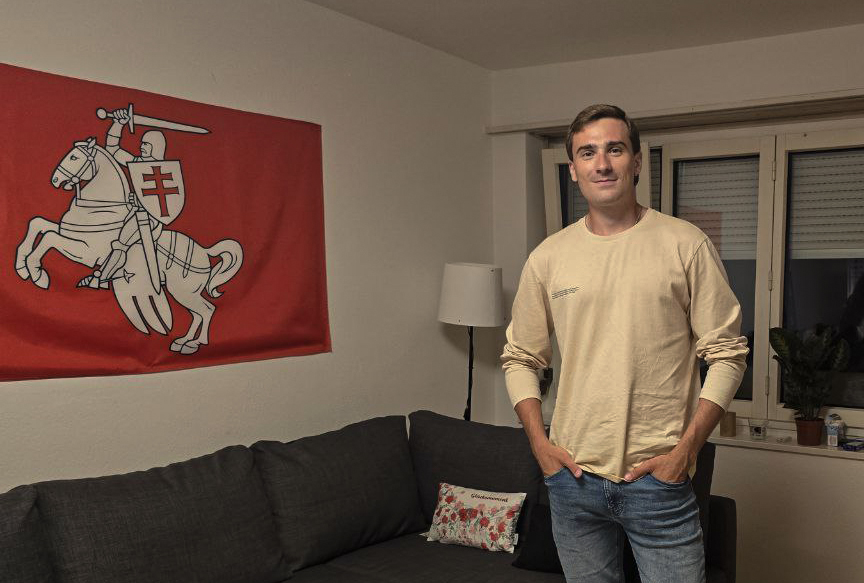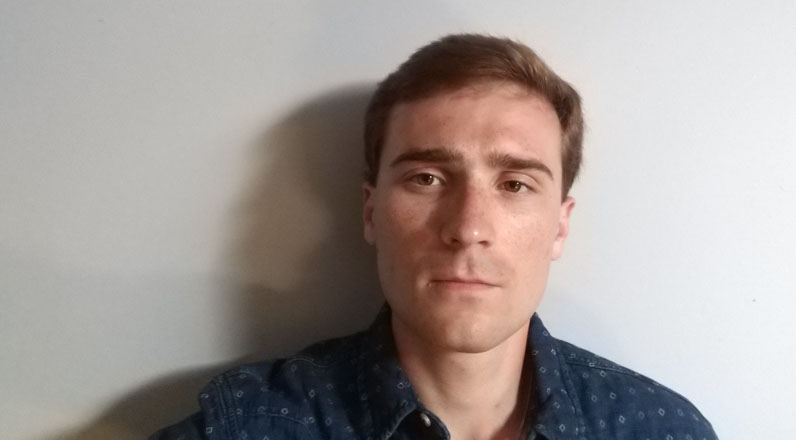"I allegedly wanted to organize a strike in the industrial zone by the first anniversary of the protests". The story of a former political prisoner
Work in Belarusian colonies is called forced labor, as it is often hard dirty work with violation of safety standards and a six-day working week for political prisoners, as, for example, in Navapolack colony No. 1. For sorting plastic waste from industrial enterprises, coal manufacturing, recycling secondary raw materials, and woodworking, prisoners receive token salaries of only a few kopecks per month (a few cents). For these reasons, some prisoners refuse to work in industrial zones in the colonies. One of them is former political prisoner Hleb Hatouka, who was sentenced to four years of imprisonment for the events of July 14, 2020 in Minsk. He served his sentence in full and was released in the spring of 2024.
Hleb told Viasna about writing a statement of refusal to work and being accused of preparing a strike for the first anniversary of the elections at the industrial zone in Navapolack colony No. 1.

- Hleb Hatouka. Photo provided by the former prisoner
The Minsk resident ended up in colony No. 1 on his birthday: on April 21, 2021, he turned 21. After the "quarantine", he was assigned to sort plastic in the industrial zone. He worked there for about a month and decided to refuse to work:
"The working conditions were objectively terrible. I was forced to sort high-pressure polyethylene [a packaging material with high chemical resistance]. This is an truly harmful job. When we were working, plastic dust was rising in the workshop. We were constantly breathing it in. You spend a day at the industrial zone, and then you blow your nose, and everything is black. I put on a medical mask, but after a couple of hours in the workshop, a black spot formed on it at the level of the nose, where you breathe. So you can damage your lungs very quickly and easily at the industrial zone.
In addition, all this is done without gloves, with bare hands. Prisoners who have been behind bars for a long time said that after months of such work, their nails begin to peel off, the skin turns yellow, and the fingers swell.
This work can also be considered unpaid. Prisoners can earn a couple of kopecks per month and that's it. Officially, the salary in the colony is more than 200 rubles (around 60 euros), but almost all of it is used to pay for living in the colony: light, food, etc.
The colony does not comply with safety rules at work and does not take measures to protect the workers. And this applies to all types of work. In the colony, prisoners lost their fingers using saws... We were simply told what to do, and if we refused, they threatened to put us in a punishment cell.
Such work humiliates human dignity. And in general, the situation is critical, and it's getting worse and worse. This system of work was adopted from the Soviet Gulag. And the more it isolates itself, the more it strives for its ideal of the 30s."
Hleb notes that all work in the colony, with its forced nature and its conditions, violates human rights:
"You don't choose whether to work or not to work. In penal colony-1 we had a six-day working week. While other prisoners worked two or three days a week, the political prisoners had to do that six times a week. In addition to work, various events were also organized. So I did not have enough free time not only for books, but also for letters. I remember receiving a food care package, but I couldn't make myself a sandwich. For me, the lack of free time was very difficult psychologically. In this colony, for the first time, I felt that I was doing time and just wasting my life, that it was pointless."
Soon Hleb wrote a statement that he refuses to work:
"I wasn't the first one to do that. I've talked to others about it. So I was soon transferred to a high-security prison, accused of allegedly wanting to organize a strike in the industrial zone by the first anniversary of the protests [on August 9, 2021]."
Then Hleb was constantly placed in a punishment cell for this statement. As the former political prisoner explains, the administration wanted to prevent him from visiting the industrial zone:
"I refused only to work, but not to visit the industrial zone. This was done so that I could not speak to other political prisoners from other detachments. Therefore, when my term in a punitive isolation cell (SHIZO) ended, they did not let me out, but immediately took video cameras, took me to the bathrooms for cleaning, where they recorded a video stating that I refused to clean the toilets. And again they placed me in SHIZO. They did this four times so that I wouldn't even have the opportunity to talk to anyone."
In total, Hleb stayed in SHIZO for 58 days, and after that he was placed in a cell-type space (PKT):
"I was sentenced to six months of PKT, but I stayed only for three, and I was taken to the Žodzina prison. Before that, I was given a condition: either a new case under Article 411 of the Criminal Code or prison."
Support the former political prisoner in exile financially:

Support Hleb: a new life after prison

















